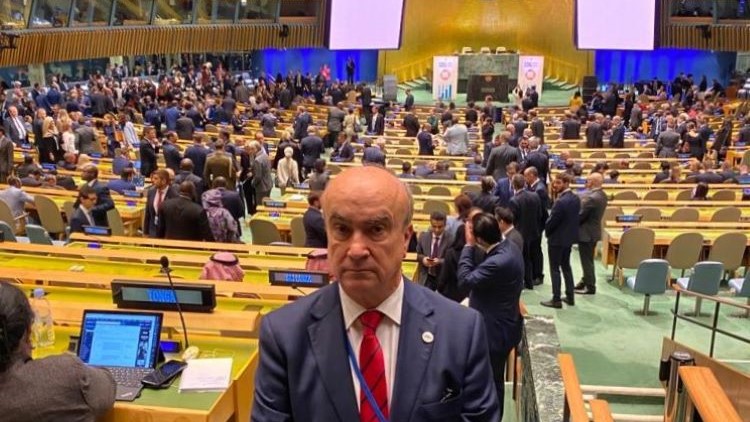Eduardo González
The United Nations General Assembly has distinguished the Organization of Ibero-American States (OEI), based in Madrid, as a UN observer body at the proposal of Spain and Argentina.
The initiative started from the representations of Argentina and Spain before the UN and was promoted by the missions of Colombia, El Salvador, Paraguay, Peru, Portugal and Uruguay. On August 1, these delegations requested the Secretary General of the United Nations, António Guterres, to include this proposal on the agenda of the 78th session of the General Assembly.
The resolution was approved on November 8, by consensus, during the meeting of the Sixth Committee of the General Assembly, the body in charge of legal affairs of the UN. The text recognizes the history of cooperation and the work that the organization has been carrying out together with the United Nations System and urges the OEI to participate in the sessions and in the work of the General Assembly as an observer.
In the words of the Secretary General of the OEI, Mariano Jabonero, this distinction will allow the organization to actively participate in high-level UN meetings, as well as enhance the implementation of activities under its umbrella. “The OEI fulfills its motto We make cooperation happen, and that cooperation is not a mere rhetorical exercise empty of commitments, content and scope. The recognition of the UN encourages us to follow that path,” said Jabonero.
“The OEI will be able to collaborate more efficiently with the international community in the efforts to achieve the effective implementation of the Sustainable Development Goals and contribute extensive knowledge and experience resulting from its 75 years of specific work in Latin America,” declared the Argentine ambassador to the UN, María del Carmen Squeff, who defended the candidacy in the session.
The OEI and the UN have been working together in recent years in the development of programs and projects that involve various agencies and organizations of the United Nations System, such as UNESCO, ECLAC, UNICEF or the ILO, especially in the production of specialized knowledge about education, science and culture in Latin America and in providing support to the most disadvantaged.







